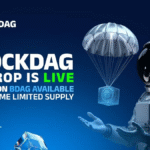- Collaboration with community boosts Solana’s security.
- Equal reward sharing strengthens partnerships.
- Impact seen on SOL and WIF assets.
DeFi Development Corp. and the dogwifhat community have launched a Solana validator node, with DeFi Dev Corp operating the infrastructure. They plan to share rewards equally between the company and the community. The project aims to enhance Solana’s security with better validator infrastructure while encouraging community engagement. DeFi Dev Corp brings institutional expertise, while the dogwifhat community contributes cultural significance.
Impact on Solana and WIF Assets
The validator impact is notable on the Solana and WIF assets. The collaboration could attract more SOL delegation, increasing staking activity. Recent market reactions reflect changes in the valuation of Solana and associated community assets, with a reported drop in DeFi Dev Corp’s stock price following the announcement. This model encourages greater decentralization and a sustainable economic framework for network contributors. Historical data has shown validator partnerships driving improvements in decentralization metrics and demand for staking assets. Early indications suggest similar outcomes, although long-term effects may vary depending on multiple market factors.
“This collaboration represents the fusion of institutional-grade validator infrastructure and the cultural power of one of crypto’s most beloved communities. Our goal is simple: maximize performance, maximize visibility, and help secure Solana, all while deepening our alignment with WIF and the broader community it represents.”
– Parker White, CIO & COO, DeFi Dev Corp
Future Prospects for Community-Institutional Collaborations
These efforts may influence financial structures by potentially stabilizing or enhancing Solana’s market position in the crypto ecosystem. The introduction of community-owned and institutionally supported validators could change existing stakeholder dynamics. As this partnership develops, stakeholders should look for indicators of change in validator performance metrics and associated cryptocurrencies. Changes in governance are another potential outcome, as communities seek to capitalize on economic benefits.
Experts suggest that this approach of community-institutional collaborations might offer a template for future blockchain integrations. Industry participants will need to monitor evolving trends in validator partnerships, especially concerning their impact on network security and economic models. Continued analysis will focus on changes in TVL, staking rates, and community engagement, providing insights into long-lasting impacts.






